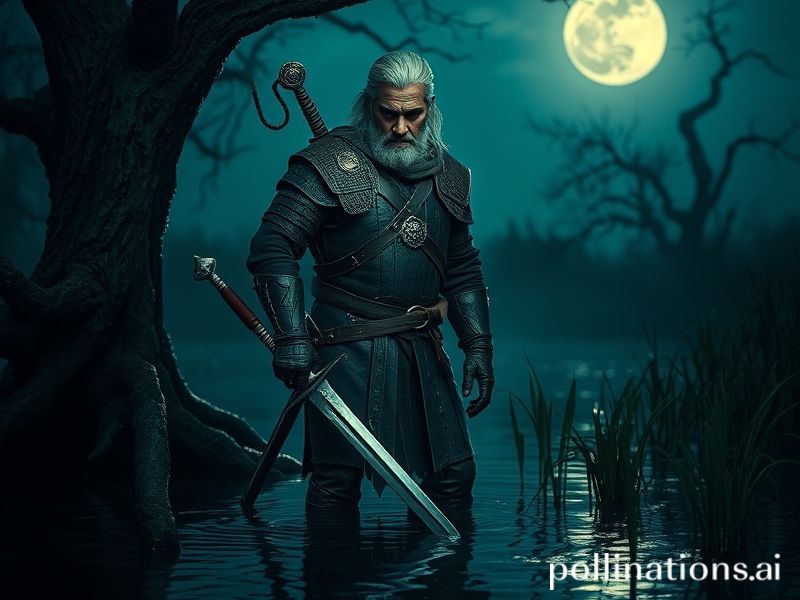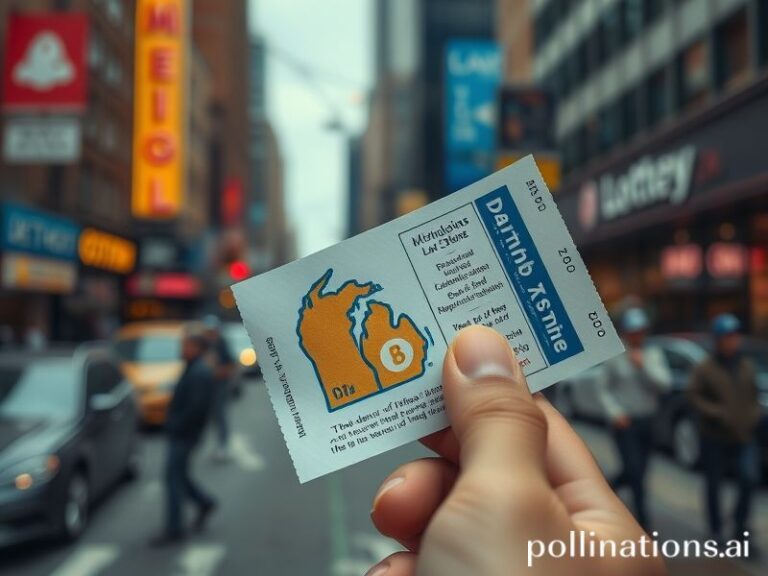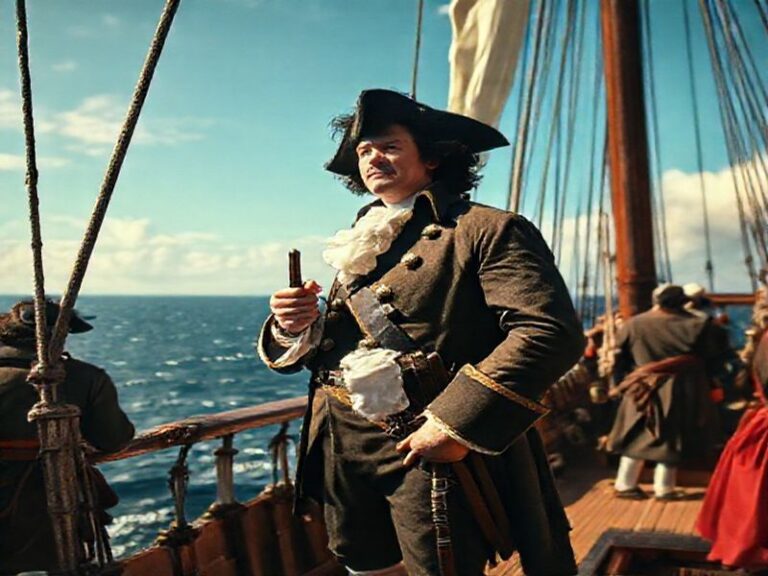The Witcher Goes Global: How a Polish Monster Hunter Conquered Netflix, NATO, and Your Netflix Queue
Geralt of Rivia, the silver-haired contract killer with the moral compass of a hung-over Jesuit, has quietly become the most successful Polish export since Marie Curie’s radium—and unlike radium, he only destroys people who arguably deserve it. Originally concocted by Andrzej Sapkowski in the late 1980s as an antidote to Tolkien cosplay, the Witcher franchise has metastasized into a global cultural franchise worth an estimated two billion dollars. In an era when actual nations struggle to stay solvent, a fictional continent that smells faintly of onions and blood is outperforming the GDP of several former Soviet republics.
From Manila to Minneapolis, viewers now greet each other with the show’s signature grunt—“Hmm”—as though auditioning for a Scandinavian death-metal band. Netflix claims The Witcher’s third season was streamed for 73 million hours in its first week alone, a figure that roughly equals the amount of time humanity has spent arguing about whether Henry Cavill’s wig is historically accurate. Meanwhile, CD Projekt Red’s Cyberpunk 2077 finally stopped crashing long enough to remind everyone that Geralt’s video-game incarnation has sold over 50 million copies, making him the most lucrative Slavic folk hero since Rasputin started charging appearance fees.
The geopolitical implications are deliciously absurd. Poland, long dismissed as Europe’s perpetually anxious bouncer, now wields soft-power influence through a mutant who bathes more often than most of its cabinet ministers. Ukrainian troops reportedly painted the Wolf School medallion on their helmets before last summer’s counteroffensive—because nothing says “sovereignty” like invoking a monster hunter who works for cash and rare Gwent cards. Even the People’s Republic of China, never shy about cultural protectionism, allowed the Netflix series to stream after censors trimmed the orgy scenes down to a polite handshake. One Beijing critic praised Geralt as “a role model for harmonious monster-slaying,” which is either bureaucratic poetry or the most terrifying human-resources slogan imaginable.
The Witcher’s success also exposes our end-times appetite for moral murk. While Disney sells sanitized fairy tales where every villain twirls a mustache and every princess has a side hustle, Geralt hacks through moral ambiguity with the enthusiasm of a hedge-fund manager in a deregulated market. His world features pogroms, refugee crises, and environmental collapse—basically a Renaissance Faire curated by the United Nations Department of Gloom. Audiences, battered by real-world headlines that read like apocalyptic Mad Libs, find comfort in a protagonist whose ethical code can be summarized as “try not to make today worse.” It’s existentialism with bathwater you probably shouldn’t drink.
Economically, the franchise has become a transnational supply chain of misery and merchandise. Turkish sweatshops churn out medallions stamped “Made in Nilfgaard.” Indonesian teens farm in-game currency to sell on gray-market sites, achieving what Marx only dreamed of: fully automated monster capitalism. Even the United Kingdom, desperate for post-Brexit relevance, now markets guided tours of “Kaer Morhen-adjacent” castles that were last relevant when Henry VIII was still thin. Tourists pay £39.99 to stand in a damp courtyard while a part-time actor in leather chaps mutters about destiny and damp socks.
And yet, for all the cynicism baked into its grimdark crust, The Witcher offers something governments rarely deliver: a shared mythology that crosses borders without requiring a customs declaration. Whether you’re streaming in São Paulo or speed-running in Seoul, you recognize the same weary shrug at the absurdity of it all. In a world where actual monsters wear suits and hold press conferences, there’s perverse comfort in watching a laconic swordsman negotiate payment for decapitating a cursed striga. At least his contracts are honest.
So here we are, citizens of late-stage everything, outsourcing our moral parables to a franchise whose hero’s greatest fear is emotional availability. The White Wolf prowls across our screens, pockets jingling with orens we can’t spend, reminding us that the real monsters were the supply chains we globalized along the way. Hmm, indeed.







